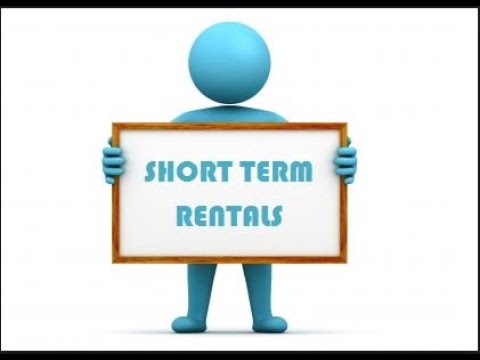Short-Term Rental Management: Key Facts, Uses, Benefits, and Disadvantages

Short-term rental management refers to the practice of overseeing and maintaining properties that are rented out for short durations, typically ranging from a single night to a few weeks. With the rise of platforms like Airbnb and Vrbo, managing short-term rentals has become a popular choice for property owners seeking to maximize their earnings. However, effective short-term rental management requires a blend of strategic planning, customer service, and operational efficiency. Below, we outline the key facts, uses, benefits, and disadvantages of this growing industry.
Key Facts About Short-Term Rental Management
Definition: Involves managing properties rented for temporary stays, typically catering to tourists, business travelers, and others seeking flexible accommodation options.
Scope of Services: Includes tasks such as property marketing, guest communication, pricing optimization, cleaning coordination, and legal compliance.
Technology Integration: Utilizes property management software and apps for booking, communication, and operational oversight.
Popularity: Short-term rentals are particularly common in tourist hotspots and urban centers.
Uses of Short-Term Rental Management
Income Generation
Allows property owners to earn money by renting out unused or investment properties.
Ideal for individuals seeking passive income.
Flexible Accommodation for Guests
Offers travelers a homely alternative to hotels, often with kitchen facilities and more space.
Tailored to the needs of families, groups, or solo travelers.
Catering to Seasonal Demands
Maximizes property use during peak tourist seasons or events.
Properties can be used personally during off-seasons or when not rented out.
Market Expansion
Gives hosts access to international and domestic travelers via global platforms.
Benefits of Short-Term Rental Management
Higher Revenue Potential
Short-term rentals often generate more income per night compared to long-term leases.
Dynamic pricing models adjust rates based on demand, ensuring maximum profitability.
Flexibility for Property Owners
Owners can block dates for personal use.
Properties can be listed or delisted based on changing needs.
Enhanced Guest Experiences
Personalized stays and amenities lead to positive reviews, attracting repeat guests.
Professional managers handle guest inquiries promptly, improving satisfaction.
Low Vacancy Rates
With proper short-term rental management, properties can achieve high occupancy rates year-round.
Scalability
Owners can scale operations by adding multiple properties to their portfolio with the help of professional management services.
Disadvantages of Short-Term Rental Management
High Operational Costs
Frequent cleaning, maintenance, and restocking of amenities add to expenses.
An initial investment in furnishing and decor can be significant.
Regulatory Challenges
Many cities impose strict regulations on short-term rentals, including licensing, taxes, and zoning restrictions.
Non-compliance can lead to fines or property bans.
Time-Intensive Management
Coordinating bookings, responding to guest inquiries, and addressing complaints require significant time and effort.
Hiring professional management services can alleviate this but adds to costs.
Revenue Volatility
Earnings fluctuate based on seasonal demand, local events, and market trends.
External factors like pandemics or economic downturns can drastically impact bookings.
Increased Wear and Tear
Frequent guest turnover leads to faster wear and tear on furnishings and appliances.
Maintenance costs are higher compared to long-term rentals.
Guest-Related Risks
Risk of property damage, noise complaints, or misuse by guests.
Insurance costs may be higher for short-term rental properties.
Best Practices for Effective Short-Term Rental Management
Invest in Professional Management Tools
Use property management software for efficient booking, pricing, and guest communication.
Ensure High-Quality Listings
Optimize listings with professional photos, detailed descriptions, and competitive pricing.
Highlight unique features of the property to attract bookings.
Maintain Exceptional Property Standards
Regularly update furnishings, appliances, and decor to meet guest expectations.
Keep the property clean and well-maintained.
Comply with Local Regulations
Stay informed about local laws and acquire necessary permits or licenses.
Pay applicable taxes to avoid legal issues.
Focus on Guest Experience
Provide clear instructions, amenities, and personalized touches to enhance stays.
Respond promptly to inquiries and address concerns professionally.
Monitor Market Trends
Stay updated on local events, seasonal patterns, and competitor pricing to remain competitive.
Conclusion
Short-term rental management is a lucrative opportunity for property owners but requires strategic planning and consistent effort. Its benefits, such as high revenue potential, flexibility, and enhanced guest experiences, make it an attractive option for many. However, challenges like operational costs, regulatory hurdles, and guest-related risks should not be overlooked. Whether managed independently or through professional services, successful short-term rental management relies on balancing profitability with exceptional guest service.
Note: IndiBlogHub features both user-submitted and editorial content. We do not verify third-party contributions. Read our Disclaimer and Privacy Policyfor details.







